Tenant eviction – a complete guide for residential landlords

Our tenant eviction solicitors provide residential landlords with specialist advice and expertise to help with their rental property.
In this guide we take you through the process of how we can help you to remove troublesome tenants in a cost-effective manner, as well as answer some questions commonly asked by landlords. The right guidance from expert tenant eviction solicitors will maximise your chances of making a successful claim and recovering your property in a quick and stress-free way.
Our team has many years’ experience in advising residential landlords on the tenant eviction process and can offer fixed fees at each stage so you are aware of how much the process is likely to cost.
Contact us for a free initial consultation to discuss your situation in detail.
Contact usFrequently-asked questions:
Click on the links below to jump to the different questions.
- What is the easiest way to evict a tenant?
- What happens if a tenant refuses to leave my property?
- Evicting tenants by serving a Section 21 notice; what is it and why use it?
- What is a Section 8 notice and why would you use this as part of the eviction process?
- How long does it take to get a tenant evicted?
- How can I get rid of a tenant without going to court?
- Do I need a solicitor to evict a tenant?
- How much does it cost to evict a tenant?
- Can a tenant sue for being evicted?
- What do our clients say after working with us?
Continue reading to find out more, or contact us using the button below if you require advice.
Contact usWhat is the easiest way to evict a tenant?

Ideally, the tenant would agree to leave the rental property voluntarily. However, this doesn’t always go to plan and often residential landlords need to take further measures to recover it.
These measures will likely include serving a Section 21 notice and then seeking a possession order from the court.
What happens if a tenant refuses to leave my property?

If a tenant refuses to leave after the expiry of a valid notice, landlords will need a court order to evict them. This is done by following the formal possession proceedings process, which can be complicated and must be completed correctly to avoid the court striking out the claim (and landlords needing to start the process again). If an application is successful, the court will then grant a possession order.
If the tenant still refuses to leave, landlords will need to apply for a warrant of possession. This, if granted, allows you to utilise bailiffs to recover possession of your property. At this stage you may choose whether to instruct County Court bailiffs or High Court enforcement agents.
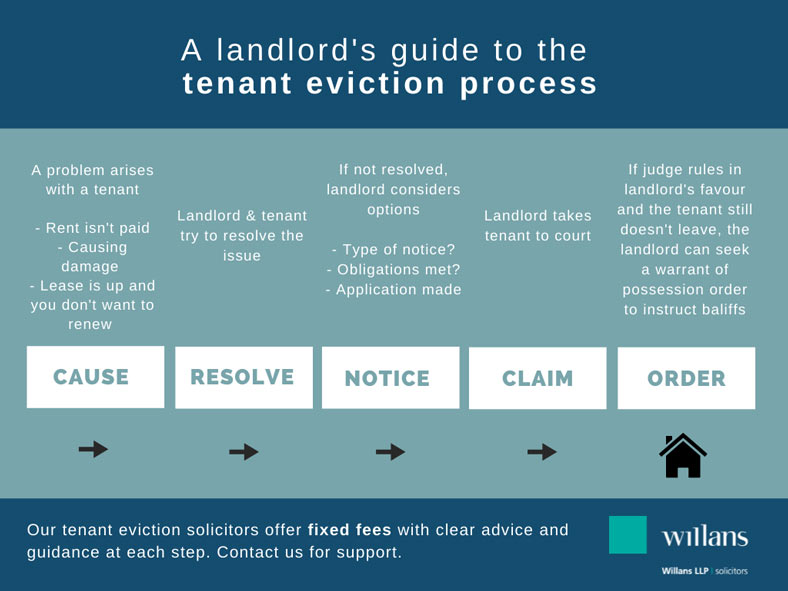
Want to speak to a solicitor about the process or our fixed fee approach?
Contact usEvicting tenants by serving a Section 21 notice; what is it and why use it?
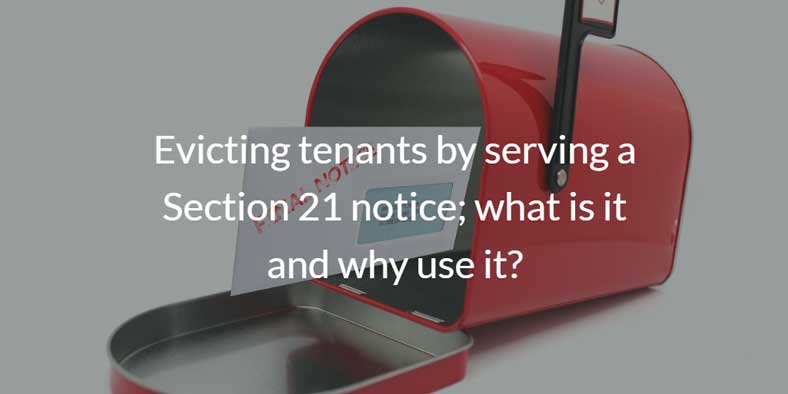
The two most common paths when seeking to recover possession of your property are to evict your tenants using a formal notice under either Section 8 or Section 21. In this section our tenant eviction solicitors provide guidance on the process of serving a Section 21 notice.
Section 21 eviction notice
A Section 21 eviction is often referred to as a “no fault” eviction. Section 21 notices do not require a reason for you to seek possession. In order to serve a valid Section 21 notice, you must have met all of your compliance obligations and the fixed term notice must have expired. Our specialist tenant eviction solicitors will review this for you.
What are the advantages in serving this type of notice?
- Speed – Section 21 possession applications can be dealt with under what is called the “Accelerated Possession Procedure”, meaning that the court can deal with non-contested matters on paper, without a hearing being listed.
- Certainty – If you have complied with all of your compliance obligations as a landlord, and the notice that you have issued is valid and in the correct form, the court is obligated to order that possession of the property is returned to you if an application is made under Section 21.
- Cost – As the application for possession is generally dealt with on paper, without a hearing, the legal costs incurred are generally lower. This is on the assumption that the application is not contested.
What are the disadvantages?
- Length of notice period – Under the current rules, a minimum two-months’ notice period must be provided for a Section 21 notice.
- Risk of non-compliance – For a Section 21 notice to be valid it is essential that you have complied with all your landlord obligations. If it later becomes apparent that you need to remedy something, you will need to start again with a new notice. At this stage you may be liable to any costs incurred by the tenant and as such, getting your notice right first time is vital. Our specialist tenant eviction solicitors will review this for you to minimise this risk.
- No monetary claim – If you bring a claim under Section 21 you cannot claim for any rent arrears or other funds which the tenant may owe you.
- Invalid notices – In addition to your obligations as a landlord, there are a variety of other factors that could make your notice invalid. It is important that you seek specialist assistance with preparing these notices to avoid wasted time if they are prepared incorrectly.
How we help you with the Section 21 process:
To ensure that you have the best prospects of success with evicting your tenant and recovering possession of your property under Section 21, we will:
Step 1: Review your documents and advise you on how to comply with your obligations
Step 2: Remedy any defects (if required and possible)
Step 3: Prepare and serve the Section 21 notice
Step 4: Issuing a claim for possession proceedings
Step 5: Enforcement (if required).
We offer a variety of competitively priced fixed fee services for removing tenants by a Section 21 process.
Contact us to get started
Contact usWhat is a Section 8 notice and why would you use this as part of the eviction process?
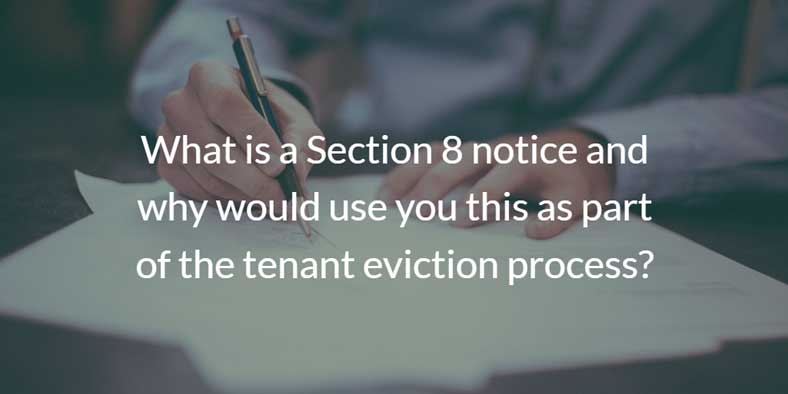
Another option available to residential landlords is serving a Section 8 eviction notice. In this section, our experienced tenant eviction solicitors provide guidance on this process.
Section 8 eviction notice
A Section 8 notice is most commonly used where a tenant has breached the tenancy in some way. The most common breach tends to be when tenants are not paying rent, but the notice can also be used for a variety of reasons, such as if the tenant is causing anti-social behaviour. Alternatively, a residential landlord may use a Section 8 notice to recover possession of a property that they once lived in.
What are the advantages of serving this type of notice?
- Length of notice period – The notice period for a Section 8 depends on the grounds being relied upon. The most common ground is rent arrears, which typically requires two weeks’ notice.
- Recovery of money – If you bring court proceedings based on a Section 8 notice you can include a claim for unpaid rent. This means that you can seek to recover your rent arrears as part of the same claim, without the need for separate proceedings.
- Flexibility of landlord obligations – If you have not complied with all of your landlord obligations, a Section 8 notice may still allow you to issue a notice to evict tenants from your rental property. However, you should be aware that these breaches can carry penalties which may be offset against funds claimed from your tenant. Our specialist lawyers can advise you on this.
- Settlement – With this type of notice we may be able to assist you on reaching a settlement with your tenant outside of court. This could make the process far less expensive and less stressful – for both the landlord and the tenant.
What are the disadvantages?
- Cost – A Section 8 application typically needs witness evidence and other documentation prepared, and a court hearing is almost always required. These factors tend to mean that evicting tenants to recover your property is often a more expensive route through Section 8 compared with Section 21.
- Time delays – As a Section 8 application is dealt with at a court hearing you can risk facing substantial delays with the court process so a Section 8 application can take longer to resolve.
- Proof – With a Section 8 application you must prove to the court that you meet the requirements of the relevant grounds that you are applying under, such as a tenant’s failure to pay rent. The court has wide discretion as to whether they will support your claim to recover your property.
How we can help you with the Section 8 process:
With any Section 8 notice we would discuss the grounds of your claim and the relevant notice periods to ensure that you have the best prospects of success. We will take the following steps to recover possession of your property under Section 8 and can help you with each stage of the process:
Step 1: Review of documents and advice on complying with your landlord obligations
Step 2: Remedying any defects (if required and possible)
Step 3: Preparing a rent or other schedule (if relevant)
Step 4: Preparation and service of Section 8 notice
Step 5: Issuing a claim for possession proceedings
Step 6: Preparation of witness statement and exhibits
Step 7: Enforcing the order (if required).
We offer a variety of competitively priced fixed fee services to help landlords remove a tenant using a Section 8 route starting from as little as £99.00 + VAT. We can help you with all of the steps mentioned above.
Contact our experienced tenant eviction solicitors for advice and our fixed fees
Contact usHow long does it take to get a tenant evicted?
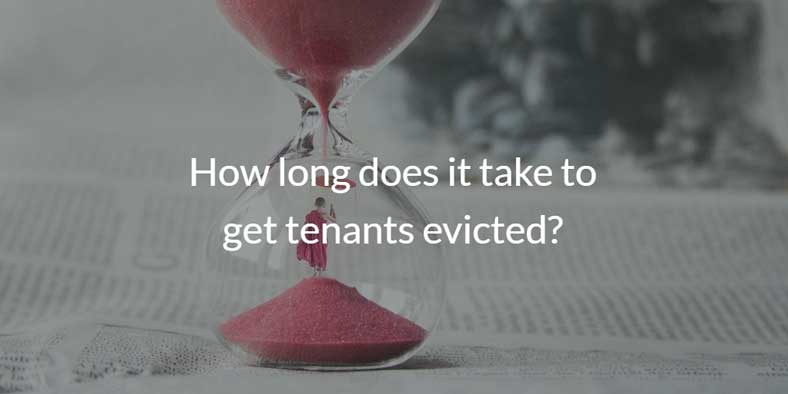
A Section 21 notice provides for a two month notice period. A Section 8 notice can vary as to the notice period depending on the grounds being relied upon. As for issuing a claim at the court, the timescale for this depends on which court the claim is being issued in. London courts are experiencing a backlog and therefore claims issued through London courts are typically taking longer to be issued.
Have concerns about the process, speak to our experts.
Contact usHow can I get rid of a tenant without going to court?

Some tenants do leave by consent. However, if your tenant does not leave by consent you will require a court order and potentially a warrant of possession to force the tenant to leave your property.
It is a two-way street and you cannot control how your tenant will react to the news on hearing you want them to leave your rental property which they may ultimately see it as their home. Sometimes it is easier to be one step removed from the process by allowing professionals like our specialist tenant eviction solicitors handle the application process for you. Depending on your grounds, we will first try to resolve the matter without the need for court.
Need clear advice, contact us
Contact usDo I need a solicitor to evict a tenant?

There are a significant number of obligations and rules that must be met before a valid notice can be given to a tenant to end your tenancy, and those rules are regularly evolving. If the rules are not correctly followed, you risk your notice being invalid and having to start over, which could waste time and money.
We strongly recommend using experienced tenant eviction solicitors at an early stage, even if it is just to have an initial review and to draft the correct notices. Our team handle these types of claims daily and can advise you on the best course of action to help you get your property back, as quickly and cost-effectively as possible.
Receive a call back from our specialist team to help get you started
Contact usHow much does it cost to evict a tenant?

Our team has years of experience in navigating the tenant eviction process and we primarily act on a fixed fee basis to assist landlords with preparing the key documents. This means that in cases where tenants do not contest matters, landlords should know in advance what their legal costs will likely be.
The first step will be to review the compliance documentation and to provide you with advice as to the best way to proceed in order to recover possession of the property as soon as possible. Reviewing the documents and providing you with our initial advice is typically charged for at the fixed fee from £249.00 plus VAT.
The next step is usually to prepare a notice which we charge for at a fixed fee from £99.00 plus VAT.
Contact us to arrange a free initial consultation with one of our tenant eviction solicitors to discuss the likely costs in your matter.
If you want to know more about our fixed cost options depending on the support you need, please get in touch.
Contact usCan a tenant sue for being evicted?
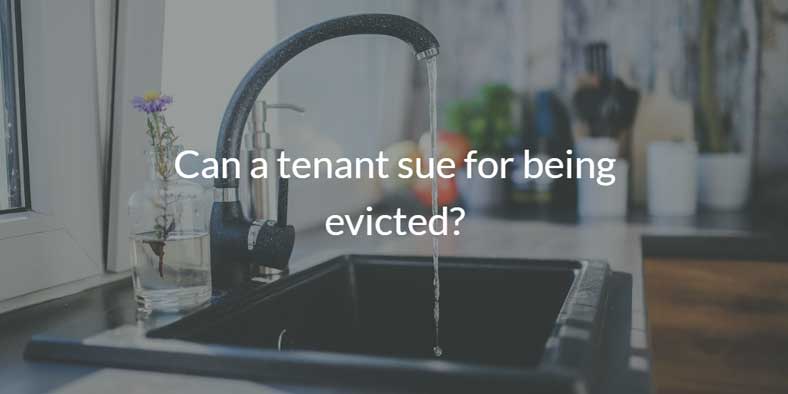
If a residential landlord has complied with all of their compliance obligations, serves the correct order, gets a court order, warrant and appoints a bailiff, then the landlord cannot generally be criticised by the courts or sued by the tenant.
However, if a landlord breaches their obligations to – or forcibly evicts – a tenant, they could be sued a substantial sum or even receive a custodial sentence.
This is one of the reasons why we strongly suggest seeking specialist legal advice; to reduce the risk to you of wrongly evicting tenants.
What do our clients say after working with us?

The following testimonials are from landlords who have dealt with our specialist tenant eviction solicitors:
Testimonial 1: In this case, our team were able to recover possession of the landlord’s property from a tenant without needing to issue proceedings:
“[The team at Willans is] very professional, approachable and supportive. A big thank you to Bethen Abraham for doing such a thorough job and taking all the stress out of the situation.” Gareth Cooper
Testimonial 2: In this case, our team successfully recovered possession from the landlord’s tenant before an allocated hearing date. This meant it was possible to cancel the hearing.
“I am very grateful to Bethen Abraham for getting my property back… she was very professional and prompt; acting swiftly, giving me the correct advice and getting my property back in a very short time. I can’t thank her enough.” Michael May
Testimonial 3: This was a case in which our tenant eviction solicitors defended a tenancy deposit claim. An excellent result was achieved for the landlord.
“A fantastic service and excellent customer care. Up-to-date information and feedback excellent. Would highly recommend.” David Woolway
We can help; please get in touch for advice.
Contact usHow we can help
As a landlord, you may have a variety of issues with your tenants. These issues could include:
- evicting your tenant
- anti-social behaviour
- damage to your property
- deposit disputes
- dilapidation claims
- disputes over payment of rent
- disrepair claims
- pets in your property
- recovering possession of your property.
At Willans, we have a team of landlord and tenant property specialists who are ready to assist you. If you are residential landlord in need of tenant eviction solicitors, please do not hesitate to contact us. Our experienced team will deal with any issue you are facing with a commercial approach and will help you to resolve the dispute as quickly and cost-effectively as possible.
Contact us
Disclaimer: Please note that this page is for guidance only and does not replace legal advice. Speak to us if you seek advice, we’d be delighted to help you resolve your dispute.
The severity of tenancy deposit penalties
As a landlord, it’s essential that you correctly protect a tenant’s deposit in order to avoid penalties for not doing so. The severity of tenancy deposit penalties depends on a…
Bethen Abraham LLB (Hons), LLM
Solicitor

Property ownership disputes – a complete guide to TOLATA claims
Our property disputes solicitors provide specialist advice and expertise on claims relating to property ownership after a relationship has broken down. The Trust of Land and Appointment of Trustee Act 1996…
Nick Southwell BA (Hons)
Partner

Tenants awarded large sum in tenancy deposit claim
In a recent case, Willans’ tenancy deposit specialists obtained an order for over £32,000.00 for clients whose landlord had failed to protect their tenancy deposit. Since 6 April 2007, deposits…
Katie Charlton LLB (Hons), MSc
Trainee solicitor










